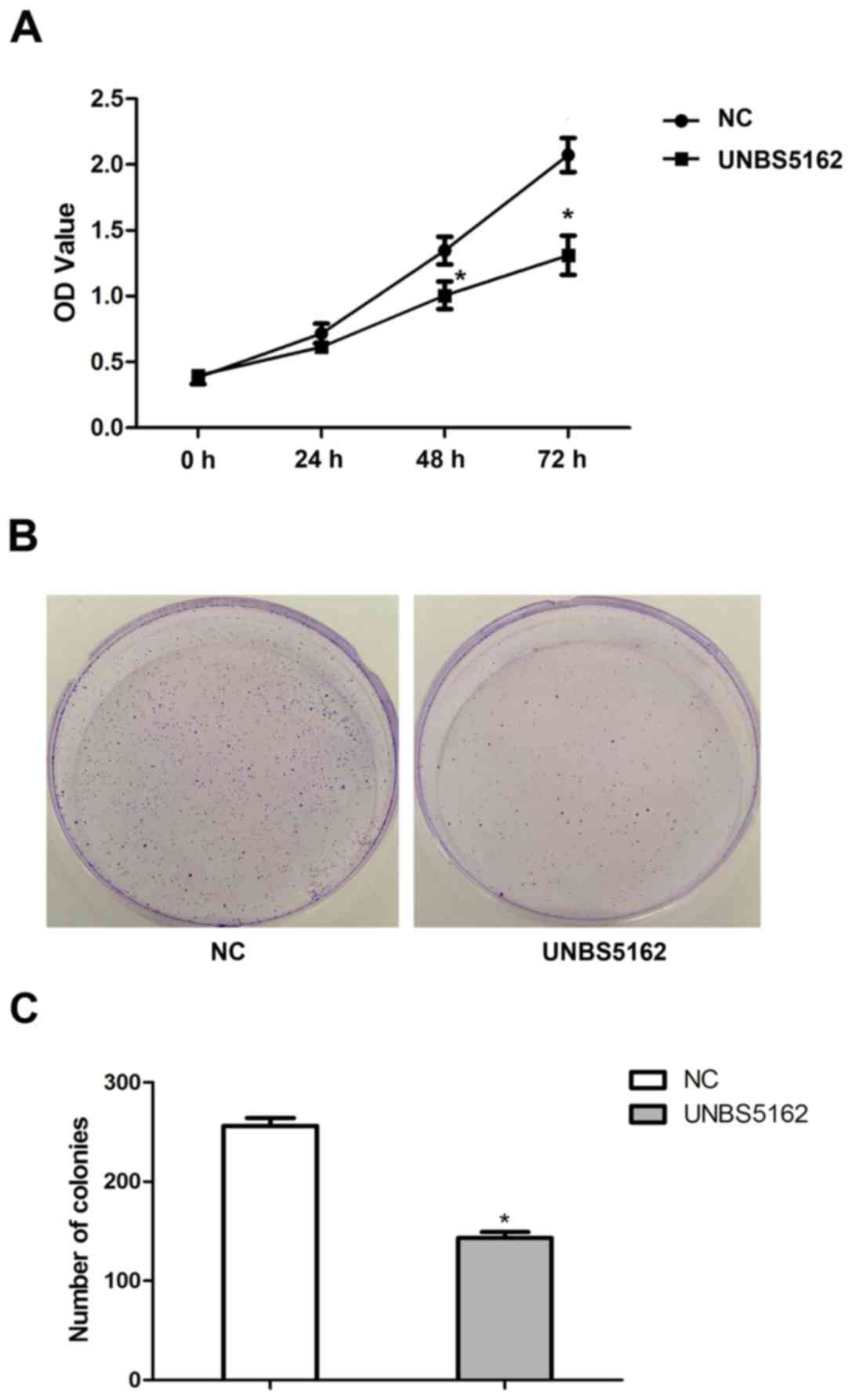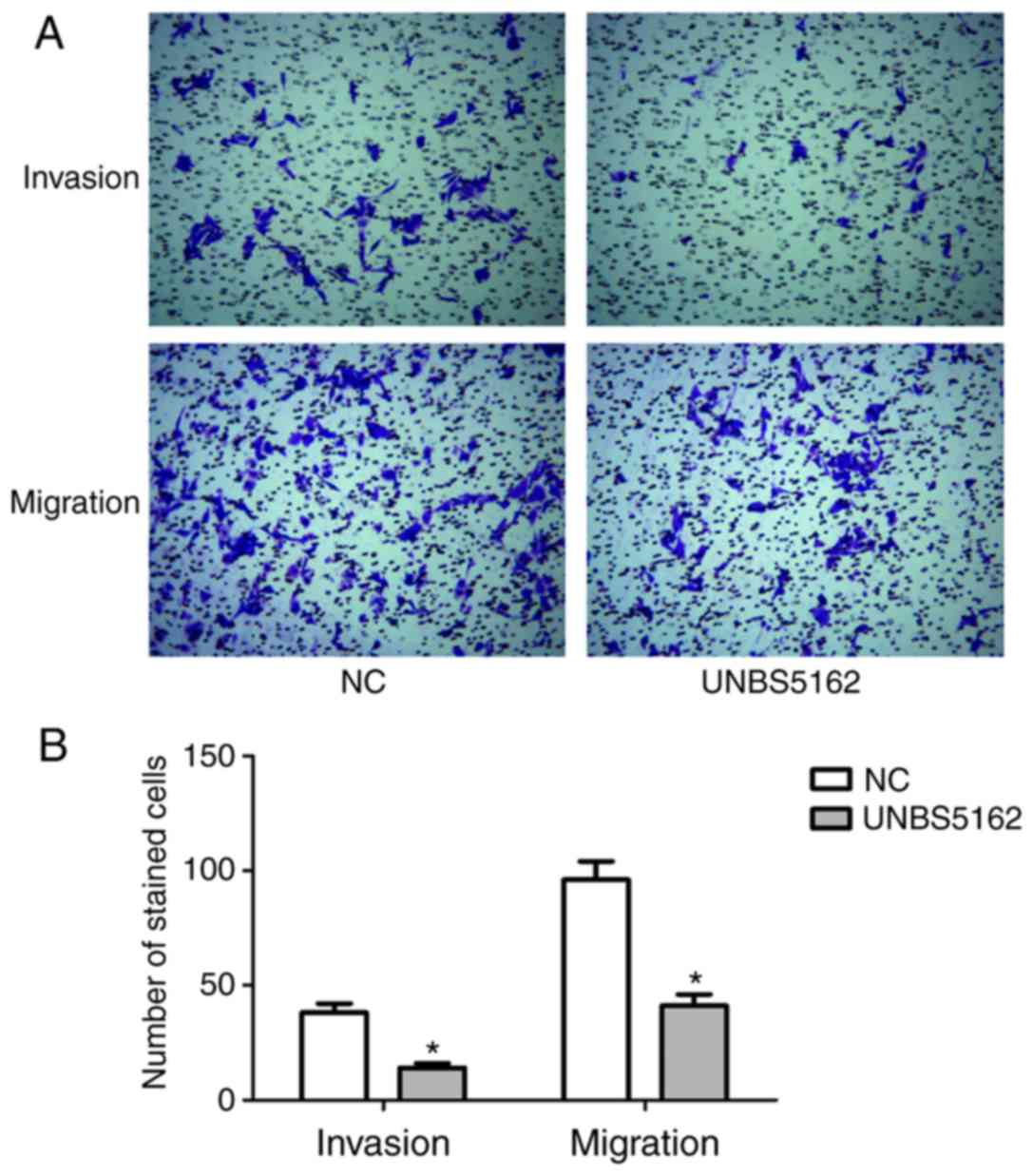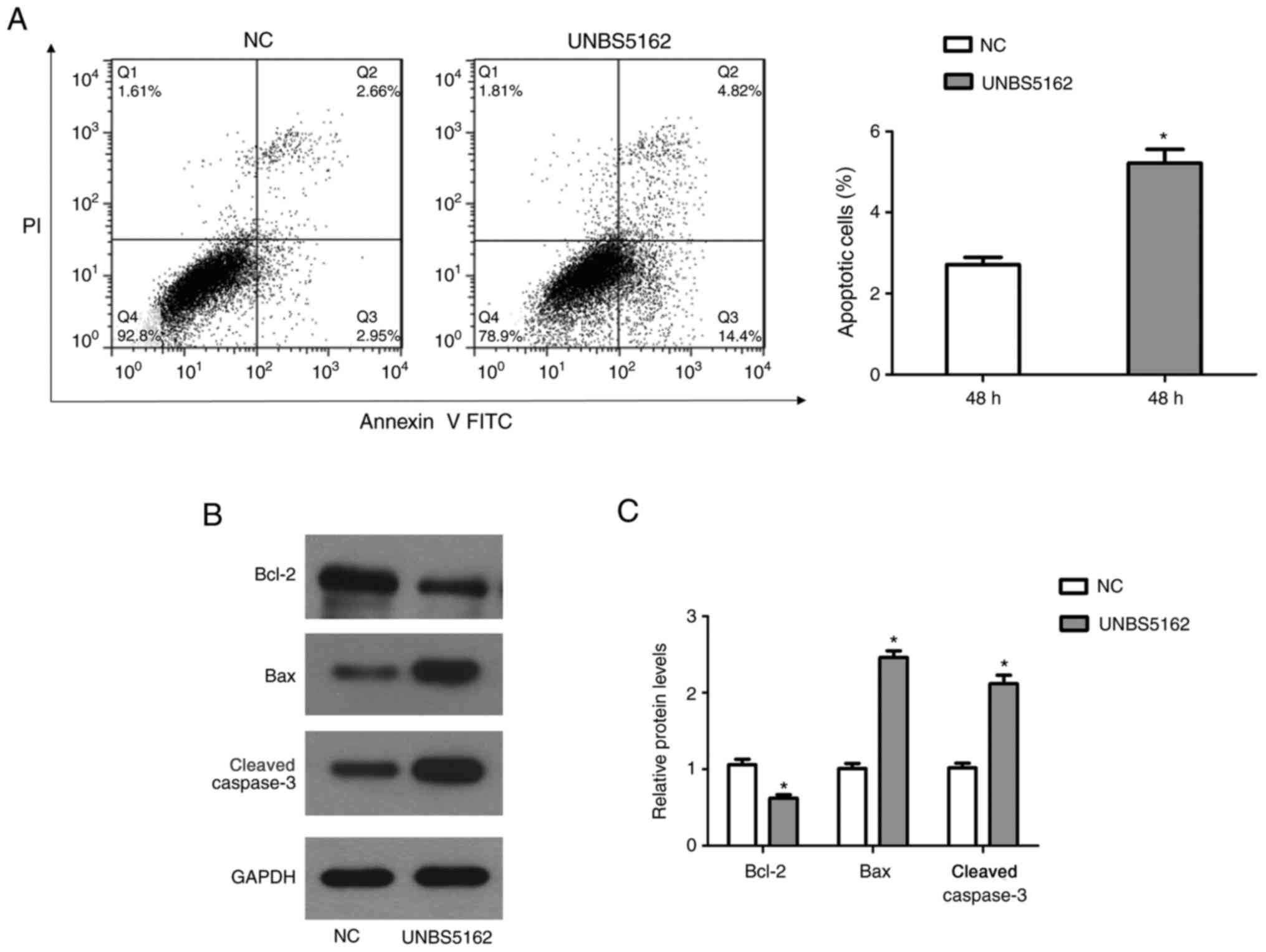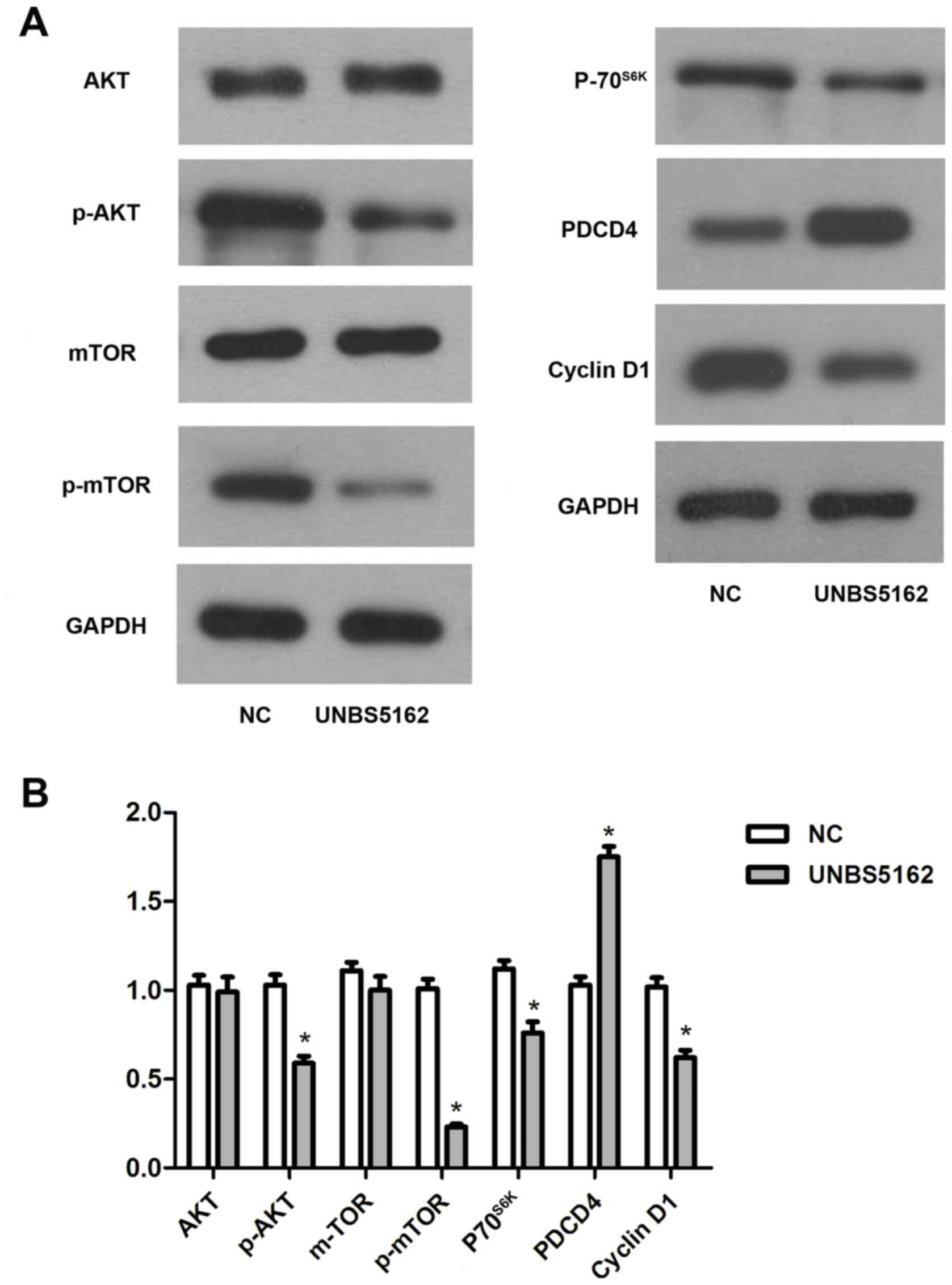|
1
|
Ganeshan D, Bhosale P, Yang T and Kundra
V: Imaging features of carcinoid tumors of the gastrointestinal
tract. AJR Am J Roentgenol. 201:773–786. 2013. View Article : Google Scholar : PubMed/NCBI
|
|
2
|
Hunt RH and Yaghoobi M: The esophageal and
gastric microbiome in health and disease. Gastroenterol Clin North
Am. 46:1212017. View Article : Google Scholar : PubMed/NCBI
|
|
3
|
Awut I, Niyaz M, Biekemitoufu H, Zhang Z,
Sheyhedin I and Hao W: Molecular pathological diagnosis for early
esophageal cancer in Kazakh patients. Oncol Lett. 3:549–553.
2012.PubMed/NCBI
|
|
4
|
Dong X, Wang L, Han Z, Zhou L, Shan L,
Ding Y, Xu W, Li J, Su Y, Cai R, et al: Different functions of
DEPTOR in modulating sensitivity to chemotherapy for esophageal
squamous cell carcinoma. Exp Cell Res. 353:35–45. 2017. View Article : Google Scholar : PubMed/NCBI
|
|
5
|
Morimoto A, Oh Y, Nakamura S, Shioda Y,
Hayase T, Imamura T, Kudo K and Imashuku S: Japan Langerhans cell
histiocytosis Study Group: Inflammatory serum cytokines and
chemokines increase associated with the disease extent in pediatric
Langerhans cell histiocytosis. Cytokine. 97:73–79. 2017. View Article : Google Scholar : PubMed/NCBI
|
|
6
|
Otsubo Y, Hashimoto K, Kanbe T, Sumi M and
Moriuchi H: Association of cord blood chemokines and other
biomarkers with neonatal complications following intrauterine
inflammation. PLoS One. 12:e01750822017. View Article : Google Scholar : PubMed/NCBI
|
|
7
|
Zlotnik A and Yoshie O: Chemokines: A new
classification system and their role in immunity. Immunity.
12:121–127. 2000. View Article : Google Scholar : PubMed/NCBI
|
|
8
|
Burkhardt AM, Tai KP, Flores-Guiterrez JP,
Vilches-Cisneros N, Kamdar K, Barbosa-Quintana O, Valle-Rios R,
Hevezi PA, Zuñiga J, Selman M, et al: CXCL17 is a mucosal chemokine
elevated in idiopathic pulmonary fibrosis that exhibits broad
antimicrobial activity. J Immunol. 188:6399–6406. 2012. View Article : Google Scholar : PubMed/NCBI
|
|
9
|
Bruyère C, Lonez C, Duray A, Cludts S,
Ruysschaert JM, Saussez S, Yeaton P, Kiss R and Mijatovic T:
Considering temozolomide as a novel potential treatment for
esophageal cancer. Cancer. 117:2004–2016. 2011. View Article : Google Scholar : PubMed/NCBI
|
|
10
|
Sasaki K, Natsugoe S, Ishigami S,
Matsumoto M, Okumura H, Setoyama T, Uchikado Y, Kita Y, Tamotsu K,
Hanazono K, et al: Expression of CXCL12 and its receptor CXCR4 in
esophageal squamous cell carcinoma. Oncol Rep. 21:65–71.
2009.PubMed/NCBI
|
|
11
|
Wang B, Khachigian LM, Esau L, Birrer MJ,
Zhao X, Parker MI and Hendricks DT: A key role for early growth
response-1 and nuclear factor-kappaB in mediating and maintaining
GRO/CXCR2 proliferative signaling in esophageal cancer. Mol Cancer
Res. 7:755–764. 2009. View Article : Google Scholar : PubMed/NCBI
|
|
12
|
Blanchet X, Langer M, Weber C, Koenen RR
and von Hundelshausen P: Touch of chemokines. Front Immunol.
3:1752012. View Article : Google Scholar : PubMed/NCBI
|
|
13
|
Nomiyama H, Hieshima K, Osada N,
Kato-Unoki Y, Otsuka-Ono K, Takegawa S, Izawa T, Yoshizawa A,
Kikuchi Y, Tanase S, et al: Extensive expansion and diversification
of the chemokine gene family in zebrafish: Identification of a
novel chemokine subfamily CX. Bmc Genomics. 9:2222008. View Article : Google Scholar : PubMed/NCBI
|
|
14
|
Lacalle RA, Blanco R, Carmona-Rodríguez L,
Martín-Leal A, Mira E and Mañes S: Chemokine receptor signaling and
the hallmarks of cancer. Int Rev Cell Mol Biol. 331:181–244. 2017.
View Article : Google Scholar : PubMed/NCBI
|
|
15
|
Nagarsheth N, Wicha MS and Zou W:
Chemokines in the cancer microenvironment and their relevance in
cancer immunotherapy. Nat Rev Immunol. 17:559–572. 2017. View Article : Google Scholar : PubMed/NCBI
|
|
16
|
Salazar N, Castellan M, Shirodkar SS and
Lokeshwar BL: Chemokines and chemokine receptors as promoters of
prostate cancer growth and progression. Crit Rev Eukaryot Gene
Expr. 23:77–91. 2013. View Article : Google Scholar : PubMed/NCBI
|
|
17
|
Ransohoff RM: Chemokines and chemokine
receptors: Standing at the crossroads of immunobiology and
neurobiology. Immunity. 31:711–721. 2009. View Article : Google Scholar : PubMed/NCBI
|
|
18
|
Balkwill FR: The chemokine system and
cancer. J Pathol. 226:148–157. 2012. View Article : Google Scholar : PubMed/NCBI
|
|
19
|
Jin JJ, Dai FX, Long ZW, Cai H, Liu XW,
Zhou Y, Hong Q, Dong QZ, Wang YN and Huang H: CXCR6 predicts poor
prognosis in gastric cancer and promotes tumor metastasis through
epithelial-mesenchymal transition. Oncol Rep. 37:3279–3286. 2017.
View Article : Google Scholar : PubMed/NCBI
|
|
20
|
Xiang Z, Zhou ZJ, Xia GK, Zhang XH, Wei
ZW, Zhu JT, Yu J, Chen W, He Y, Schwarz RE, et al: A positive
crosstalk between CXCR4 and CXCR2 promotes gastric cancer
metastasis. Oncogene. 36:5122–5133. 2017. View Article : Google Scholar : PubMed/NCBI
|
|
21
|
Dang H, Wu W, Wang B, Cui C, Niu J, Chen
J, Chen Z and Liu Y: CXCL5 plays a promoting role in osteosarcoma
cell migration and invasion in autocrine- and paracrine-dependent
manners. Oncol Res. 25:177–186. 2017. View Article : Google Scholar : PubMed/NCBI
|
|
22
|
da Silva JM, Dos Santos Moreira TP, Sobral
LM, Queiroz-Junior CM, Rachid MA, Proudfoot AEI, Garlet GP, Batista
AC, Teixeira MM, Leopoldino AM, et al: Relevance of CCL3/CCR5 axis
in oral carcinogenesis. Oncotarget. 8:51024–51036. 2017.PubMed/NCBI
|
|
23
|
Garg R, Blando JM, Perez CJ, Abba MC,
Benavides F and Kazanietz MG: Protein kinase C epsilon cooperates
with PTEN loss for prostate tumorigenesis through the CXCL13-CXCR5
Pathway. Cell Rep. 19:375–388. 2017. View Article : Google Scholar : PubMed/NCBI
|
|
24
|
Tian ZY, Xie SQ, Du YW, Ma YF, Zhao J, Gao
WY and Wang CJ: Synthesis, cytotoxicity and apoptosis of
naphthalimide polyamine conjugates as antitumor agents. Eur J Med
Chem. 44:393–399. 2009. View Article : Google Scholar : PubMed/NCBI
|
|
25
|
Ge C, Chang L, Zhao Y, Chang C, Xu X, He
H, Wang Y, Dai F, Xie S and Wang C: Design, synthesis and
evaluation of naphthalimide derivatives as potential anticancer
agents for hepatocellular carcinoma. Molecules. 22:E3422017.
View Article : Google Scholar : PubMed/NCBI
|
|
26
|
Seliga R, Pilatova M, Sarissky M, Viglasky
V, Walko M and Mojzis J: Novel naphthalimide polyamine derivatives
as potential antitumor agents. Mol Biol Rep. 40:4129–4137. 2013.
View Article : Google Scholar : PubMed/NCBI
|
|
27
|
Banerjee S, Veale EB, Phelan CM, Murphy
SA, Tocci GM, Gillespie LJ, Frimannsson DO, Kelly JM and
Gunnlaugsson T: Recent advances in the development of
1,8-naphthalimide based DNA targeting binders, anticancer and
fluorescent cellular imaging agents. Chem Soc Rev. 42:1601–1618.
2013. View Article : Google Scholar : PubMed/NCBI
|
|
28
|
Kamal A, Bolla NR, Srikanth PS and
Srivastava AK: Naphthalimide derivatives with therapeutic
characteristics: A patent review. Expert Opin Ther Pat. 23:299–317.
2013. View Article : Google Scholar : PubMed/NCBI
|
|
29
|
Mijatovic T, Mahieu T, Bruyère C, De Nève
N, Dewelle J, Simon G, Dehoux MJ, van der Aar E, Haibe-Kains B,
Bontempi G, et al: UNBS5162, a novel naphthalimide that decreases
CXCL chemokine expression in experimental prostate cancers.
Neoplasia. 10:573–586. 2008. View Article : Google Scholar : PubMed/NCBI
|
|
30
|
Laudati E, Currò D, Navarra P and Lisi L:
Blockade of CCR5 receptor prevents M2 microglia phenotype in a
microglia-glioma paradigm. Neurochem Int. 108:100–108. 2017.
View Article : Google Scholar : PubMed/NCBI
|
|
31
|
Moradzadeh M, Hosseini A, Erfanian S and
Rezaei H: Epigallocatechin-3-gallate promotes apoptosis in human
breast cancer T47D cells through down-regulation of PI3K/AKT and
telomerase. Pharmacol Rep. 69:924–928. 2017. View Article : Google Scholar : PubMed/NCBI
|
|
32
|
Geng Y, Zhou Y, Wu S, Hu Y, Lin K, Wang Y,
Zheng Z and Wu W: Sulforaphane induced apoptosis via promotion of
mitochondrial fusion and ERK1/2-mediated 26S proteasome degradation
of novel pro-survival bim and upregulation of bax in human
non-small cell lung cancer cells. J Cancer. 8:2456–2470. 2017.
View Article : Google Scholar : PubMed/NCBI
|
|
33
|
Popolin CP, Reis JPB, Becceneri AB,
Graminha AE, Almeida MAP, Corrêa RS, Colina-Vegas LA, Ellena J,
Batista AA, Cominetti MR, et al: Cytotoxicity and anti-tumor
effects of new ruthenium complexes on triple negative breast cancer
cells. PLoS One. 12:e01832752017. View Article : Google Scholar : PubMed/NCBI
|
|
34
|
Canesin G, Evans-Axelsson S, Hellsten R,
Krzyzanowska A, Prasad CP, Bjartell A and Andersson T: Treatment
with the WNT5A-mimicking peptide Foxy-5 effectively reduces the
metastatic spread of WNT5A-low prostate cancer cells in an
orthotopic mouse model. PLoS One. 12:e01844182017. View Article : Google Scholar : PubMed/NCBI
|
|
35
|
Wang T, Xuan X, Li M, Gao P, Zheng Y, Zang
W and Zhao G: Retraction Note: Astragalus saponins affect
proliferation, invasion and apoptosis of gastric cancer BGC-823
cells. Diagn Pathol. 12:672017. View Article : Google Scholar : PubMed/NCBI
|
|
36
|
Ouyang L, Shi Z, Zhao S, Wang FT, Zhou TT,
Liu B and Bao JK: Programmed cell death pathways in cancer: A
review of apoptosis, autophagy and programmed necrosis. Cell
Prolif. 45:487–498. 2012. View Article : Google Scholar : PubMed/NCBI
|
|
37
|
Hong SY, Yu FX, Luo Y and Hagen T:
Oncogenic activation of the PI3K/Akt pathway promotes cellular
glucose uptake by downregulating the expression of
thioredoxin-interacting protein. Cell Signal. 28:377–383. 2016.
View Article : Google Scholar : PubMed/NCBI
|
|
38
|
Jiang L, Wang C, Lei F, Zhang L, Zhang X,
Liu A, Wu G, Zhu J and Song L: miR-93 promotes cell proliferation
in gliomas through activation of PI3K/Akt signaling pathway.
Oncotarget. 6:8286–8299. 2015. View Article : Google Scholar : PubMed/NCBI
|
|
39
|
Qiao M, Chang X, Jing F, Rojanasakul Y and
Jiang BH: Role of PI3K and AKT specific isoforms in ovarian cancer
cell migration, invasion and proliferation through the p70S6K1
pathway. Cell Signal. 18:2262–2271. 2006. View Article : Google Scholar : PubMed/NCBI
|
|
40
|
Liu G, Song Y, Cui L, Wen Z and Lu X:
Inositol hexaphosphate suppresses growth and induces apoptosis in
HT-29 colorectal cancer cells in culture: PI3K/Akt pathway as a
potential target. Int J Clin Exp Pathol. 8:1402–1410.
2015.PubMed/NCBI
|
|
41
|
YT L, HC W, YC H, CL C, MY Y and CY C:
Capsaicin induces autophagy and apoptosis in human nasopharyngeal
carcinoma cells by downregulating the PI3K/AKT/mTOR pathway. Int J
Mol Sci. 18:E13432017. View Article : Google Scholar : PubMed/NCBI
|
|
42
|
Kanthou C, Dachs GU, Lefley DV, Steele AJ,
Coralli-Foxon C, Harris S, Greco O, Dos Santos SA, Reyes-Aldasoro
CC, English WR and Tozer GM: Tumour cells expressing single VEGF
isoforms display distinct growth, survival and migration
characteristics. PLoS One. 9:e1040152014. View Article : Google Scholar : PubMed/NCBI
|
|
43
|
Suhara T, Kim HS, Kirshenbaum LA and Walsh
K: Suppression of Akt signaling induces fas ligand expression:
Involvement of caspase and jun kinase activation in Akt-mediated
fas ligand regulation. Mol Cell Biol. 22:680–691. 2002. View Article : Google Scholar : PubMed/NCBI
|
|
44
|
Caroppi P, Sinibaldi F, Fiorucci L and
Santucci R: Apoptosis and human diseases: Mitochondrion damage and
lethal role of released cytochrome C as proapoptotic protein. Curr
Med Chem. 16:4058–4065. 2009. View Article : Google Scholar : PubMed/NCBI
|


















